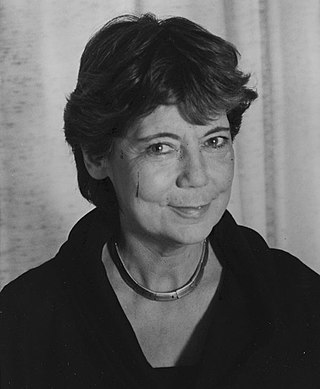Related Research Articles
The British Psychological Society (BPS) is a representative body for psychologists and psychology in the United Kingdom.
Social representations are a system of values, ideas, metaphors, beliefs, and practices that serve to establish social order, orient participants and enable communication among the members of groups and communities. Social representation theory is a body of theory within social psychology and sociological social psychology. It has parallels in sociological theorizing such as social constructionism and symbolic interactionism, and is similar in some ways to mass consensus and discursive psychology.

Serge Moscovici, born Srul Herş Moscovici, was a Romanian-born French social psychologist, director of the Laboratoire Européen de Psychologie Sociale, which he co-founded in 1974 at the Maison des sciences de l'homme in Paris. He was a member of the European Academy of Sciences and Arts and Officer of the Légion d'honneur, as well as a member of the Russian Academy of Sciences and honorary member of the Hungarian Academy of Sciences. Moscovici's son, Pierre Moscovici, was European Commissioner for Economic and Financial Affairs, Taxation and Customs.
Ivana Marková FBA is a Czech born social psychologist known for her work on language and the constructs of communication.

Miles Ronald Cole Hewstone is a British social psychologist who is well known for his work on social relations.

Henri Tajfel was a Polish social psychologist, best known for his pioneering work on the cognitive aspects of prejudice and social identity theory, as well as being one of the founders of the European Association of Experimental Social Psychology.
Sandra Jovchelovitch, is a Brazilian born social psychologist, currently Professor of Social Psychology and Director of the MSc program in Social and Cultural Psychology at the Institute of Social Psychology at the London School of Economics (LSE), of which she has served as head since August 2007. Dr. Jovchelovitch is co-editor of the Journal of Community and Applied Social Psychology and directs a book series on Contemporary Social Psychology for the Brazilian publishing house Vozes. She also serves on the editorial boards of the European Journal of Social Psychology and Psicologia e Sociedade. She has held appointments at the Maison de Sciences de l'Homme, under the auspices of CNPq and also teaches regularly in Brazil, being on the faculty of the Federal University of Rio Grande do Sul (UFRGS).

George Gaskell is a British Emeritus Professor of Social Psychology at the London School of Economics and Political Science (LSE). Formerly Director of the Methodology Institute, which he established with Colm O’Muircheartaigh, he was Pro-director for Planning and Resources and a member of the LSE Council and Court of Governors.
Societal psychology is a development within social psychology which emphasizes the all-embracing force of the social, institutional, and cultural environments, and with it the study of social phenomena in their own right as they affect, and are affected by, the members of the particular society. The term societal psychology was coined by Hilde Himmelweit and George Gaskell in 1990, in preference to sociological social psychology, to avoid a single alliance to one other discipline.

Hildegard Therese Himmelweit was a German social psychologist who had a major influence on the development of the discipline in Britain.

Nikolas Rose is a British sociologist and social theorist. He is Distinguished Honorary Professor at the Research School of Social Sciences, in the College of Arts and Social Sciences at the Australian National University and Honorary Professor at the Institute of Advanced Studies at University College London. From January 2012 to until his retirement in April 2021 he was Professor of Sociology in the Department of Global Health and Social Medicine at King's College London, having joined King's to found this new Department. He was the Co-Founder and Co-Director of King's ESRC Centre for Society and Mental Health. Before moving to King's College London, he was the James Martin White Professor of Sociology at the London School of Economics, director and founder of LSE's BIOS Centre for the Study of Bioscience, Biomedicine, Biotechnology and Society from 2002 to 2011, and Head of the LSE Department of Sociology (2002–2006). He was previously Professor of Sociology at Goldsmiths, University of London, where he was Head of the Department of Sociology, Pro-Warden for Research and Head of the Goldsmiths Centre for Urban and Community Research and Director of a major evaluation of urban regeneration in South East London. He is a Fellow of the British Academy, the Royal Society of Arts and the Academy of Social Sciences, and a Fellow of the Royal Danish Academy of Science and Letters. He holds honorary doctorates from the University of Sussex, England, and Aarhus University, Denmark.

Wolfgang Prinz is a German cognitive psychologist. He is the director of the Max Planck Institute for Human Cognitive and Brain Sciences in Leipzig, Germany, and an internationally recognized expert in experimental psychology, cognitive psychology and philosophy of mind. He is the founder of the common coding theory between perception and action that has a significant impact in cognitive neuroscience and social cognition.

Mark van Vugt is a Dutch evolutionary psychologist who holds a professorship in evolutionary psychology and work and organizational psychology at the VU University Amsterdam. Van Vugt has affiliate positions at the University of Oxford, Institute for Cognitive and Evolutionary Anthropology (ICEA).

Wolfgang Wagner is an Austrian social psychologist, currently professor at the Department of Psychology at the University of Tartu, Estonia. Formerly he was at the Johannes Kepler University in Linz, Austria, and affiliated with the Department of Social Psychology and Methodology at the University of San Sebastián, Spain. He is renowned for his contributions to the Theory of Social Representations.
Cognitive polyphasia is where different kinds of knowledge, possessing different rationalities live side by side in the same individual or collective. From Greek: polloi "many", phasis "appearance".
Gustav Jahoda, FBA, FRSE was an Austrian-born psychologist who made a sustained contribution to the development of cross-cultural psychology and cultural psychology.
Saadi Lahlou is Professor in Social Psychology, in the Department of Psychological and Behavioural Science at the London School of Economics. He conducts and publishes research in the areas of social psychology, consumer behaviour, survey and forecast methods, lexical analysis, cognition and design. He is the Director of the Paris Institute for Advanced Study
Andrew Patrick Arthur Steptoe is a British psychologist and epidemiologist and Head of the Department of Behavioural Science and Health at University College London. He is a pioneer in health psychology and behavioural medicine in the UK and internationally, known for his work on psychosocial factors in cardiovascular disease, ageing, and positive wellbeing and health.
Denise Jodelet is a French social psychologist with particular expertise in social representation theory and socio-cultural psychology.
Alex Gillespie is a Professor of Psychological and Behavioral Science at the London School of Economics and a visiting Professor at Oslo New University.
References
- ↑ "Pete Harris". University of Sussex. Retrieved 8 September 2022.
- ↑ McGuinness, Carol (2016). Origins of Psychology NI. Belfast: British Psychological Society NI.
- ↑ "Robert MacLaughlin Farr". University of Glasgow. Retrieved 26 October 2020.
- ↑ "LSE Theses OnLine". LSE. Retrieved 26 September 2023.
- ↑ "PBS postgraduate prizes". LSE. Retrieved 8 September 2022.
- ↑ "Past Presidents". British Psychological Society. Retrieved 26 October 2020.
- ↑ "Farr, Professor Robert M." Wellcome Library. Retrieved 26 October 2020.
- ↑ Farr, Angus (31 Oct 2013). "Robert Farr obituary". The Guardian. Retrieved 18 May 2023.
- ↑ "Member". Academia Europaea. Retrieved 8 September 2022.